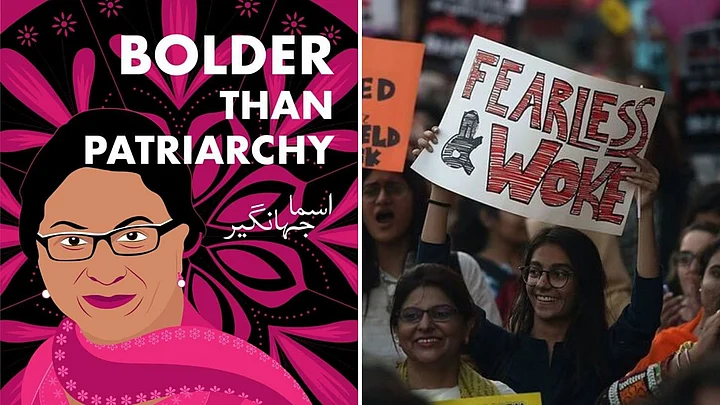Every year, on 8 March, the world collectively unifies in its centuries-old fight against patriarchy by celebrating International Women’s Day. Over the years, the movement has been successfully (and sadly) co-opted by capitalism. And while that has certainly diluted its impact, the women of Pakistan have, in the past two years, breathed new revolutionary life into the celebration with the annual occurrence of ‘Aurat March.’
What is the ‘Aurat March’?
Started in 2018 by a women’s collective called ‘Hum Auratein’, ‘Aurat March’ is a term used for women’s marches held across Pakistan on 8 March. It is an effort by Pakistani women to make the feminist movement more inclusive by not limiting it to just upper-class women. What started in Lahore has today spread to multiple cities in the country, like Peshawar, Islamabad, Faisalabad and more. But despite its huge popularity, the Aurat March has faced its fair share of backlash.
In late February, a mural created by volunteers and supporters of Aurat March 2020 in Lahore’s Hussain Chowk was brutally torn down. The wall had been filled with posters supporting and campaigning for Aurat March 2020. Just a few hours after volunteers had put up their artworks, the posters had been ripped apart violently.
Although, for the women of Pakistan, this wasn’t as disheartening. If anything, it was a reflection of why the Aurat March is more necessary than ever.
Haters Gonna Hate
The resistance against the Aurat March comes in waves and as 8 March draws closer, its haters tend to get more aggressive. On 24 February, a petition was filed against the march by Judicial Activism Council Chairman Azhar Siddique. The petition boldly claimed that the Aurat March was “against the norms of Islam.” The petitioner also blamed women for apparently holding placards and posters with “objectionable messages” during the previous marches. What the petitioner mainly demanded was not an end to the march itself, but rather its advertisement and messaging on social media. After hearing the arguments, the court still wasn’t entirely convinced and asked public institutions to weigh in.
History is witness to the fact that all revolutions only grow strong in the face of resistance. Despite being relatively new, Aurat March, aided by social media, has united the women of Pakistan and how. They’ve taken to social media, flooding it with their voices in every way possible. From personal stories shared with the tag #WhyIMarch to posters that portray women as strong individuals smashing the patriarchy, Aurat March is a force to reckon with.
Take a look:
The official Instagram account of ‘Aurat March’ has also been publishing an illustrated A to Z guide that centres around Pakistani women and their feminist struggle. The series sheds light on not just important political aspects of feminism but also women, like Qandeel Baloch, who are remembered as icons of the movement.
In addition to demanding social, economic and political rights, an important objective of the Aurat March is safety and inclusion in public spaces. After the Aurat March wall was vandalised, it became clear that the resistance is aggressive and violent towards women speaking out. And while that’s enough to silence someone into fear, the social media discourse around Aurat March 2020 is proof that the movement has only begun and will not die down without achieving what it wants.
